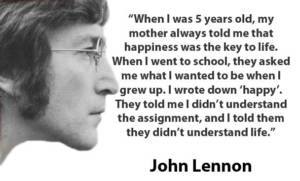 I want to add something to the endless discussion about why it’s important to read literary fiction. The discussion is important.
I want to add something to the endless discussion about why it’s important to read literary fiction. The discussion is important.
You may have graduated from high school English class and feel like you never want to go back again, but you didn’t graduate from Life. Too many people have stopped reading quality fiction that makes them think about Life these days. That’s why this endless discussion about books and their import continues — taking the time to think about life is essential for all of us. Books assume that’s why you’re reading them — especially literary stories by anyone from James Joyce and Virginia Woolf to Joy Williams and James Salter.
You can find a lot of essays and blog posts out there on the value of novels, short stories, and plays because they teach empathy and help people understand another person’s point of view. Indeed, the written word in general is still the most effective way to express all the nuances of human emotion. These days, it feels in some ways that people are losing touch with emotional reality and concern for how other people feel in any number of social situations. Could it be that fewer people are reading quality fiction these days? Maybe people are spending less time with books and more time with porn and video games.
You can also find arguments on how readers of serious fiction are proven to be more intuitive, better problem solvers, superior communicators, and higher achievers at work and in their families. Cognitive benefits like the ability to focus better, enhanced memory and knowledge retention, and lower levels of stress also accrue for serious readers. Just google “benefits of reading.”
It’s also kind of obvious that when you read stories you learn things — things like what it was like to have a leisurely morning in a Mohawk encampment, how to sew a button on a pair of breeches, or the history of Japan and China before and during World War II. Knowledge is always a good thing, right?
There’s another reason why literature is important, though. It used to be in the old days when we all agreed on a common reality (more or less) and believed that there was something we called Truth, a favorite pastime of many was to try to figure out the meaning of life, or maybe wonder at their purpose on this planet rotating around the sun at roughly 67,000 miles per hour. These days I don’t hear much about the meaning of life except as a joke, and not too many of us worry about whether they have a purpose or not. Most people seem to think they know what they’re doing. More than just a few claim there isn’t a true purpose and that there is no meaning except what you want to say matters to you.
This is where fiction comes in if you let it. Almost all good stories are about characters trying to figure out the meaning of life or figuring out how to overcome obstacles so that they can achieve their purpose in life. Fiction pushes us on the big questions: Is true love real? Is it worth sacrificing for? What is suffering? What are the personal costs of racial discrimination? Is hatred real? How about your fear of death? How much are you willing to sacrifice in order to realize your dreams? What the hell is racism all about? How does true love get destroyed? How is the soul of a man changed when he goes off to war? Is there even a soul?
 I’d go on. I’m sure you can argue that a lot of stories are just bunk. That’s true. But I will stand firm that our best stories are about the process of growth characters go through trying to give the life they live meaning — even when they fail. The point I want to make isn’t that we can learn from reading about this process. Rather, reading about that process naturally inspires us to think about our own lives and our own struggles. The best stories still keep the doors and windows of our creative imaginations open and remind us that the struggle to find meaning is an end itself.
I’d go on. I’m sure you can argue that a lot of stories are just bunk. That’s true. But I will stand firm that our best stories are about the process of growth characters go through trying to give the life they live meaning — even when they fail. The point I want to make isn’t that we can learn from reading about this process. Rather, reading about that process naturally inspires us to think about our own lives and our own struggles. The best stories still keep the doors and windows of our creative imaginations open and remind us that the struggle to find meaning is an end itself.
Don’t forget your English teachers. They loved the process of exploring the meaning of life through books. And they’d found their calling too, their reason for living, their purpose — it was helping you learn why reading good books is the key to the meaning of life.
Great resources on good books
Give us your favorite resources in the comments section

